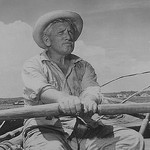Four classics so far have been made child friendly by KinderGuides: On The Road, by Jack Kerouac; Breakfast at Tiffany’s, by Truman Capote; Arthur C. Clarke’s 2001: A Space Odyssey—and Ernest Hemingway’s The Old Man and the Sea. The stories have been dramatically abbreviated and have large, colorful illustrations. Among the next four classics to be published by KinderGuides are Harper Lee’s To Kill a Mockingbird, and Jane Austin’s Pride and Prejudice. Bear in mind, these are being read to 6 to 12-year olds. On the Road, by Jack Kerouac, blessedly omits the drugs, prostitutes and wild parties.


Forbes just published an article by Frank Miniter entitled “A Startling Example of How the Politically Correct Currents Pull Strongly Toward Mediocrity.” It starts out asking if Harper Lee’s To Kill a Mockingbird, actually can be watered down for young readers, noting that the great dumbing down of the American mind isn’t just underway, but has become a parody of itself.

The KinderGuides’ version of The Old Man and the Sea begins with, “Santiago is an old fisherman who lives in a small village by the sea, on an island called Cuba. Every day he takes his boat far out into the ocean to catch fish. But after 84 days of trolling, he hasn’t caught any fish at all. He is sad.”
Frank Miniter’s article notes further that The Old Man and the Sea is a concise novella as it is, exploring man’s struggle, not just with a fish, but with his mortality. The prose in the original is hardly difficult. The real Hemingway begins, “He was an old man who fished alone in a skiff in the gulfstream and he had gone eighty-four days now without a fish.” If the word ‘skiff’ is a new and challenging word, there is always the dictionary. At the Forbes article goes on to note, the theme of a man’s struggling, knowing his body is failing him and that inevitably he will be a tragic figure, but that nevertheless he must face his mortality with grace, regardless, is lost in the KinderGuides’ version.
Miniter writes, “Instead of raising children’s knowledge and understanding of these things, this is another example of watering down the education of our youth. Should great paintings also be simplified into cartoon characters? How about plays and music?”
This reminds me of the cartoons—which were designed to be ironic and funny—of condensing of Hemingway’s books into one-minute cartoons. I’ll repost A Farewell to Arms below. (IN FIFTEEN MINUTES SEE INSTAGRAM NOVEL.)
Do you think this is a smart way to introduce children to the classics or just plain ridiculous?
Best to all for the New Year!


Love, Christine

Absolutely dumbing down. Let children read the classics when they are intellectually and emotionally mature enough to read and appreciate the writing.
totally agree! Hemingway’s power is in the way he puts the words together, not in describing the plot. I don’t see how this helps anyone understand the beauty of the books cited. Thanks so much for commenting, Wanda. Best for the holidays! Christine